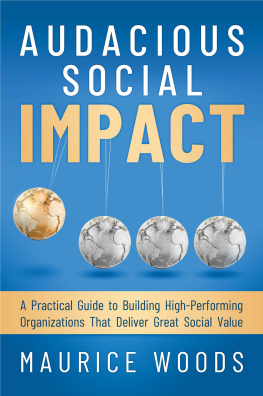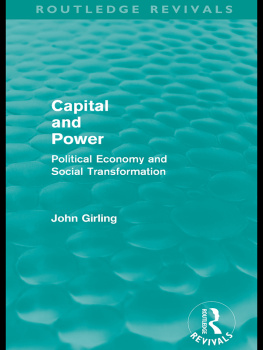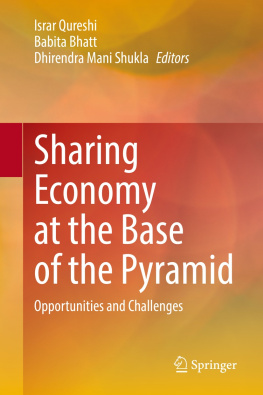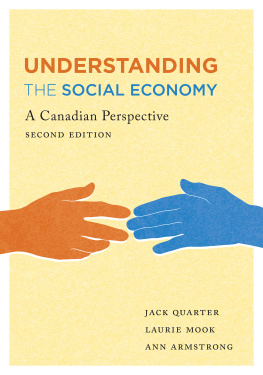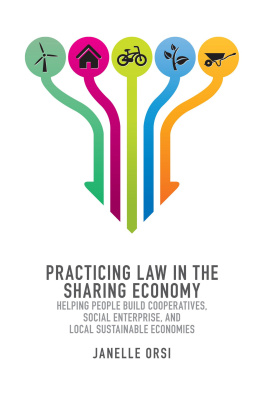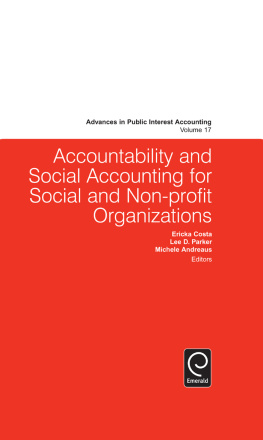SCALING UP
SCALING UP
THE CONVERGENCE
OF SOCIAL ECONOMY
AND SUSTAINABILITY
EDITED BY MIKE GISMONDI,
SEAN CONNELLY, MARY BECKIE,
SEAN MARKEY, MARK ROSELAND

Copyright 2016 Mike Gismondi, Sean Connelly, Mary Beckie, Sean Markey, and Mark Roseland
Published by AU Press, Athabasca University
1200, 10011 109 Street, Edmonton, AB T5J 3S8
ISBN 978-1-77199-021-9 (print) 978-1-77199-022-6 (PDF) 978-1-77199-023-3 (epub) doi: 10.15215/aupress/9781771990219 .01
Cover and interior design by Sergiy Kozakov
Printed and bound in Canada by Marquis Book Printers
Library and Archives Canada Cataloguing in Publication
Scaling up : the convergence of social economy and sustainability / editors, Mike Gismondi, Sean Connelly, Mary Beckie, Sean Markey, Mark Roseland.
Includes bibliographical references.
Issued in print and electronic formats.
1. Cooperative societiesBritish ColumbiaCase studies. 2. Cooperative societiesAlbertaCase studies. 3. Sustainable developmentBritish ColumbiaCase studies. 4. Sustainable developmentAlbertaCase studies. I. Gismondi, Michael Anthony, author, editor II. Connelly, Sean, 1975-, author, editor III. Beckie, Mary, 1954-, author, editor IV. Markey, Sean Patrick, 1970-, author, editor V. Roseland, Mark author, editor
HD3450.A3B74 2015 334.09711 C2015-906796-0
C2015-906797-9
We acknowledge the financial support of the Government of Canada.

Assistance provided by the Government of Alberta, Alberta Media Fund.

Please contact AU Press, Athabasca University at for permissions and copyright information.
, Strong Institutions, Weak Strategies: Credit Unions and the Rural Social Economy, is a revised version of
Kristensen, Freya, Sean Markey, and Stewart Perry. 2011. Our Liquidity Is Trust, Not Cash: Credit Unions and the Rural Social Economy, Journal of Rural and Community Development 5 (3): 14361.
For those seeking transitions to socio-ecological sustainability,
thanks for your inventiveness. This book is for the rest of you.
Contents
Mike Gismondi, Sean Connelly, Mary Beckie, Sean Markey, and Mark Roseland |
Sean Connelly, Mike Gismondi, Sean Markey, and Mark Roseland |
Mike Gismondi, Lynda Ross, and Juanita Marois |
Mary Beckie and Sean Connelly |
John Restakis |
Julie L. MacArthur |
Kelly Vodden, Lillian Hunt, and Randy Bell |
George Penfold, Lauren Rethoret, and Terri MacDonald |
Marena Brinkhurst and Mark Roseland |
Noel Keough, Mike Gismondi, and Erin Swift-Leppkumpu |
Sean Markey, Freya Kristensen, and Stewart Perry |
Mike Gismondi, Sean Connelly, and Sean Markey |
Tables and Figures
Figures
Environment-related activities of ESE organizations in Alberta and BC
Primary environmental mission for Alberta ESE organizations
Primary environmental mission for BC ESE organizations
Primary social mission for Alberta ESE organizations
Primary social mission for BC ESE organizations
Growth of ESE organizations in Alberta and BC from 1914 to 2010
Geographic Range Served by ESE organizations in Alberta and BC
Type of support given by ESE organizations in Alberta and BC to other organizations
Sources of revenue for ESE organizations in Alberta and BC
Total revenues of ESE organizations in Alberta
Total revenues of ESE organizations in BC
Market-based activities of ESE organizations in Alberta and BC
Aerial view of the construction of the Gibson Block
Gibson Block, 2006
The Alex Taylor School, Edmonton
The Old Y Building, Calgary
Hillhurst Cottage School, Calgary
Tables
Characteristics of weak and strong sustainable community development
Characteristics of weak and strong social economy
Characteristics of strong social economy, strong sustainable community development
Primary work sectors
Employment in Alberta and BC: Number of organizations and jobs
Revenue: ESE organizations in Alberta and BC
Where the dollars go: A comparison of different project-ownership structures
The affordable housing continuum
Strengths and weaknesses of six land tenure approaches
Characteristics of credit unions studied
Food: Summary of findings
Social care: Summary of findings
Energy and natural resources: Summary of findings
Eco-cultural tourism: Summary of findings
Housing, transport, and community land trusts: Summary of findings
Heritage-building conservation: Summary of findings
Financing and sustainability: Summary of findings
Acknowledgements
Our work emerges from seven years of research as part of the British ColumbiaAlberta Social Economy Research Alliance, or BALTA (socialeconomy-bcalberta.ca). The editors would like to thank all our friends associated with BALTA and with its Scaling Innovation for Sustainability project (balta-sis.ca).
We gratefully acknowledge research funding support from the Social Sciences and Humanities Research Council of Canada and from our home universities: Athabasca University, the University of Alberta, the University of Otago/Te Whare Wnanga o Otgo, and Simon Fraser University.
Thanks also to each of our co-authors and to the many graduate student researchers, social economy practitioners, and community friends who helped compile research notes and case study information, many of whom are named alongside the case studies in the text.
Cheers to Don McNair for his careful reading and suggestions. And a special thanks to Mike Lewis and Stuart Wulff, BALTAs heart and soul, for their leadership, inspiration, and steady hands.
Introduction
Social Economics and Sustainability
Mike Gismondi, Sean Connelly, Mary Beckie, Sean Markey, and Mark Roseland
When we began this project, our perspective on the social economy and sustainability was based on our work as theorists and practitioners active in the environmental movement. Over the years, however, that viewpoint has changed through our participation in an alliance of academics and community practitioners whose mandate was to research the role of the social economy in western Canada. This experience brought us into contact with many leaders from Canadas co-operative and enterprising non-profit and community development sectors. While we had been building the environmental movement, they had been buildingsome of them for over forty yearsthe social economy movement and its networks.
We discovered that social economics is connected to all aspects of sustainability: ecological conservation, social justice, gender equity, cultural health and continuity, human well-being, and ethical responsibility for future generations. More importantly, we found in the practice of social economics new strategic directions for both the politics of sustainability and the organizational and institutional setup of sustainability alternatives. We saw how local, democratic organizations can advance ecological and social sustainability. By the very initiatives that they define and carry out, often to meet basic needs in a community or region, these small organizations practice sustainability. They social economize sustainability, you might say.
Next page

